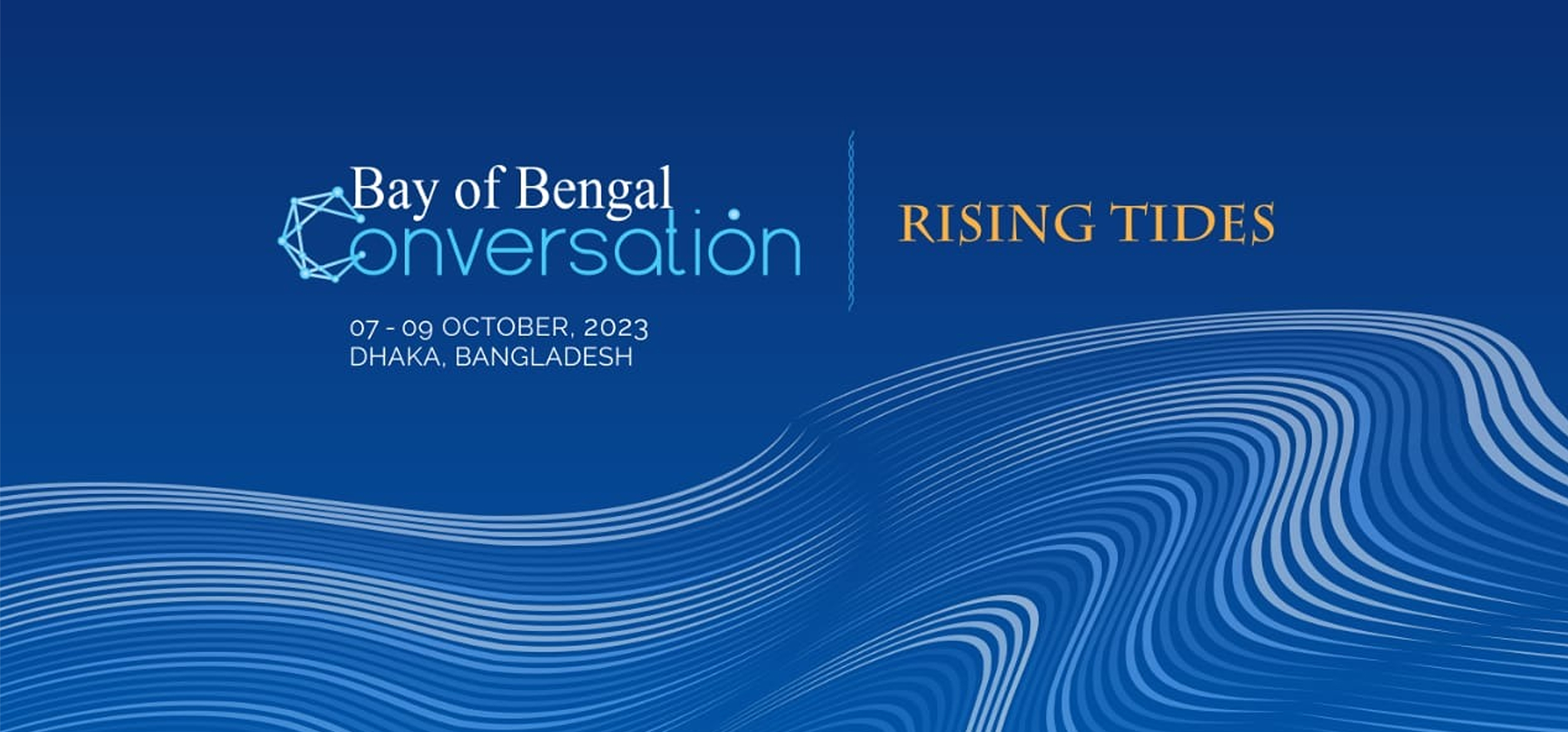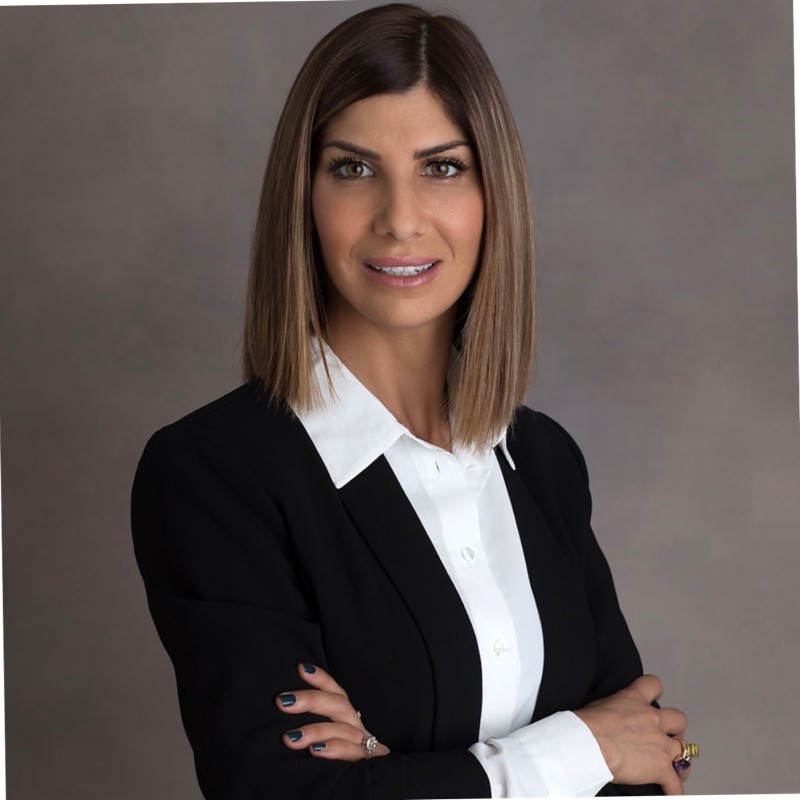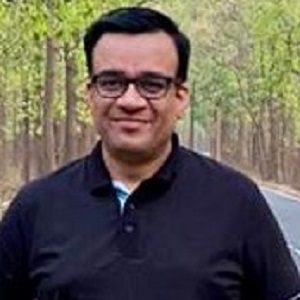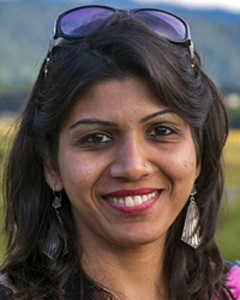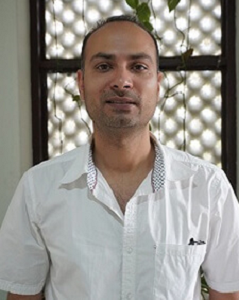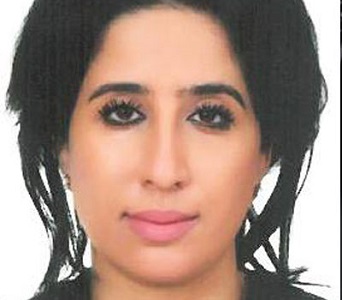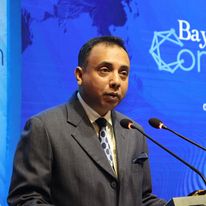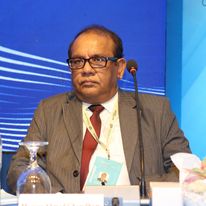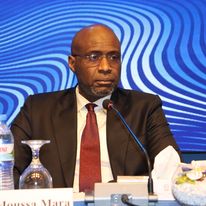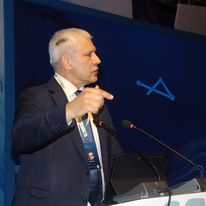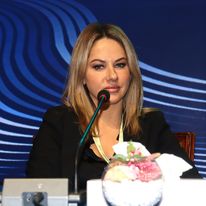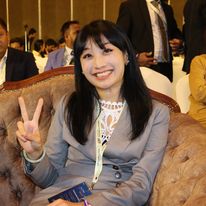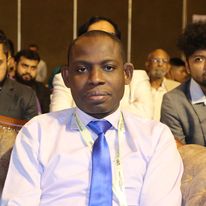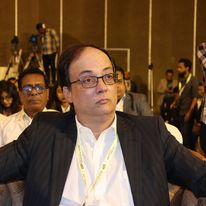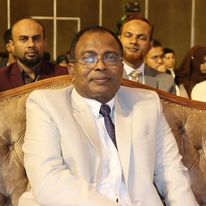Agenda_________
This year’s Bay of Bengal Conversation will feature a deep dive into contemporary issues divided into five key thematic pillars of conversation:
The idea of the Indo-Pacific has changed drastically over time. The region was initially envisioned as a collective of nations comprising emergent anti-colonial forces. However, the contemporary notion of the Indo-Pacific stems from the idea of the late prime minister of Japan, Shinzō Abe, who identified the region as a confluence of the Indian and Pacific Oceans and saw the potential for the dynamic coupling to serve as seas of freedom and prosperity in broader Asia. The focus on the security of sea lanes linking the two oceans is the fundamental pillar of most Indo-Pacific strategies, as formalized in 2019 by the United States under the concept of a “Free and Open Indo-Pacific”. Several scholars have pointed out that this concept is primarily understood as a U.S.-led containment strategy directed against China. The term gained further salience when it was adopted by India. Several nations of the Global North now have their own versions of an Indo-Pacific strategy, focusing on their own geopolitical and economic interests. The question now has to be asked as to what factors have resulted in this confluence of paradigms, and what are the implications of this new paradigm to the individual nations of the region?
Recent decades have seen a sharp decline in bilateral relations between two eminent nuclear superpowers USA and China. Antagonistic rhetoric, military escalation in the South China Sea, and a trade war quickly turning into a potential cold war are all disturbing signs of unrest in the Indo-Pacific. The stated goal of all declared Indo-Pacific strategies include the ongoing peace and stability of the region. And yet, the fear remains that this unified quest for peace and stability may inevitably lead to further strife and conflict. The escalating rivalry between the United States and China is the most significant geopolitical issue in the Indo-Pacific region, but the nations of the Indo-Pacific are not mere bystanders. They are also active participants with their own stated objectives and stakes. What role can each Indo-Pacific nation play in this new theatre of great power rivalry to ensure peace and prosperity for the greater Indo-Pacific region?
The confluence of geographies has bred multiple unsolved conflicts, which add to the region’s status as a potential geopolitical tinderbox. Unresolved conflicts include:
-The continuing conflict between Taiwan and China, driven by China’s recent escalation of bellicose language and military activities in the TaiwanStrait.
-Several territorial disputes in the Indo-Pacific area, notably those between China and Japan over the Senkaku/Diaoyu Islands and China and a number of Southeast Asian states over the South ChinaSea.
-North Korea’s pursuit of nuclear weapons and ballistic missiles, as well as the country’s belligerent attitude, which has heightened tensions with the US, South Korea, and Japan.
-Myanmar’s protracted civil conflict which has resulted in the genocide of theRohingya people and created one of the region’s greatest refugeecrises.
-The ongoing unsolved humanitarian and refugee crises inAfghanistan
-The unresolved territorial issue between India andPakistan
The majority of these conditions have remained unchanged or are actively deteriorating. Almost all of these concerns pose significant challenges to regional stability. What current diplomatic frameworks keep these disputes under control, and how might regional players come together to avoid the tinderbox from being lit?
The nations of the Indo-Pacific have some of the world’s highest and fastest-growing greenhouse gas emission rates. Currently, the region accounts for more than half of global carbon dioxide emissions. The region also contains roughly two-thirds of the world’s seas and is one of the most sensitive to the effects of climate change internationally. South Asia’s glaciers are melting, and many of the Indian Ocean’s Pacific’s tiny island nations are facing disastrous sea-level rises.And these difficulties do not exist in isolation. For example, the South China Sea, a critical security hotspot in the area, is home to more than half of the world’s fishing boats, which fight for increasingly precious marine resources. When security, biodiversity loss, and climate issues collide, as they do in multiple locations in the Indo-Pacific, they exacerbate and magnify the broader issue of climate adaptation and mitigation. Only through active engagement of Indo- Pacific nations can we hope to confront these global concerns? Though more global climate action forums such as COP offer some prescriptions for the issue, how can regional stakeholders discuss, participate, and collaborate to progress against climate change and biodiversity loss?
If we are to follow the trajectories of regional development to their logical conclusion, the Indo- Pacific will find four broad geopolitical situation that the region will settle into eventually.
One is an American-led order that would look a lot like the current one. Along with its allies and partners, the United States would continue to build and improve regional rules and standards. The US would also be essentially free to wield power without substantial restraints, allowing it to mold the Indo-Pacific area according to its interests and preferences.
A Chinese-led framework would be a significant departure from the current order. Washington would relinquish leadership to Beijing, enabling the Chinese Communist Party to steer the region’s growth. Beijing would very certainly want to expand its political, economic, scientific, military, and cultural clout in the area and beyond.
A bipolar order would combine the characteristics of each of these orders. The US and China would compete across the Indo-Pacific, each attempting to construct an order that favored its own interests. Regional states would have little agency, as in the abovementioned situations; they would be obliged to select sides. A bipolar order would place a price on regional governments’ alignment decisions but also put them in more danger.
In a multipolar order, three or more nations compete for regional dominance and influence. This system’s potential poles might include the US, China, India, Japan, the UK, Australia, the EU, and others. Regional nations would have a better chance of remaining non-aligned in such a scenario. However, as the number of poles rises, regional regulations and norms may become increasinglycontentious.
As the direction for the future of the Indo-Pacific rests largely upon the action or inaction of regional actors, which kind of world order they would like to see and be a part of?
Partners

Sponsors

Events_________
Day 1: Saturday, October 7
Time: 09:30 – 10:30Venue: Grand Ballroom
Manjur Ahmed Chowdhury, Chairman, CGS, Bangladesh Download Report
Moussa Mara, Former Prime Minister, Mali; Member, Club de Madrid Download Report
Zillur Rahman, Executive Director, CGS; Chair, Bay of Bengal Conversation, Bangladesh Download Report
Plenary Session
Time: 11:00 – 12:20 Venue: Grand Ballroom
Speakers:
Abdulla Rasheed Ahmed, Minister of State for Education, Maldives
C. Christine Fair, Professor, Security Studies, Georgetown University, USA
Karori Singh, Former Director and Emeritus Fellow, South Asia Studies Centre, University of Rajasthan, India
Leonardo Paz Neves, Researcher, Getulio Vargas Foundation, Brazil
Pramod Jaiswal, Research Director, Nepal Institute for International Cooperation and Engagement, Nepal
Judith Mwaniki, Director, Development Programmes, Consortium of Economic Research and Development Studies, Kenya (Moderator)
Download Report
Plenary Session
12:20 – 13:30 Venue: Grand Ballroom
Speakers:
Debapriya Bhattacharya, Distinguished Fellow, Centre for Policy Dialogue, Bangladesh
Jovan Ratkovic, Senior Fellow, Agora Strategy Group, Germany
Konstantinos Foutzopoulos, Executive Director, South East Leadership Dialogue, Greece
Matej Gregorec, Programme Manager, Ministry of Foreign and European Affairs, Slovenia
Vlada Galan, Partner, Altum International Strategies, Ukraine
Sheela Tasneem Haq, Senior Governance Specialist, UNDP-Bangladesh (Moderator)
Download Report
Plenary Session
14:30 – 15:50 Venue: Grand Ballroom
Speakers:
Anurag Acharya, Director,Policy Entrepreneurs Inc., Nepal
Cuihong Cai, Professor, Centre for American Studies, Fudan University, China
Leo Wigger, Editor, Zenith Magazine, Germany
Nurul Kabir, Editor, New Age, Bangladesh
Parveen F Chowdhury, President, Commonwealth Journalist Association, Bangladesh
Faruq Faisel, Former Regional Director, South Asia and Bangladesh, Article 19, Bangladesh(Moderator)
Download Report
Plenary Session
15:50 – 17:10 Venue: Grand Ballroom
Speakers:
Ambika Vishwanath, Founder & Director, Kubernein Initiative, India
Arif Faisal, Programme Specialist (Nature, Climate and Energy), UNDP-Bangladesh
Arjan De Haan, Senior Program Specialist, International Development Research Centre, Canada
Emmanuel Antwi Akoto, Project Manager, BSW Solar, Ghana
Sardar M Asaduzzaman, Head of Programme Management and Partnership Unit, UNDP-Bangladesh
Rashed Al Mahmud Titumir, Professor, Department of Development Studies, University of Dhaka, Bangladesh (Moderator)
Download Report
After Show Conversation (By Invitation Only) 18:30 – 20:00 Venue: Surma
Speakers:
Ali Riaz, Distinguished Professor, Illinois State University, USA
C. Christine Fair, Professor, Security Studies, Georgetown University, USA
Gregory Simons, Associate Professor, Department of Communication Science, Turiba University, Sweden
Irfan Yar,Founder& Managing Director, Afghanistan Security Institute, Canada(Moderator)
Download Report
Venue: Meghna After Show Conversation (By Invitation Only)
Speakers:
Peter Grk, Secretary General, Bled Strategic Forum, Ministry of Foreign and European Affairs, Slovenia
Rani Yan Yan, Adviser, Chakma Chief Circle and Indigenous Peoples’ Human Rights Defender, Bangladesh
Vlada Galan, Partner, Altum International Strategies, Ukraine
Ambika Vishwanath, Founder and Director, Kubernein Initiative, India (Moderator)
Download Report
Time: 09:30 – 10:30Venue: Grand Ballroom
Inaugural Session
Speakers:Manjur Ahmed Chowdhury, Chairman, CGS, Bangladesh Download Report
Moussa Mara, Former Prime Minister, Mali; Member, Club de Madrid Download Report
Zillur Rahman, Executive Director, CGS; Chair, Bay of Bengal Conversation, Bangladesh Download Report
Plenary Session
Time: 11:00 – 12:20 Venue: Grand Ballroom
A Post G20 World: The Global South Rising
This year, the G20 summit began proceedings by welcoming the African Union (AU) as the newest member of a bloc that already represented 85 per cent of the world’s gross domestic product (GDP). Host India, along with Brazil, Indonesia and South Africa, played a key role in avoiding a fracturing of the G20 over the Ukraine conflict, officials said, reflecting the growing power of the Global South developing nations in the group. Meanwhile, there is confirmation that BRICS will expand to give a voice to the needs of the Global South. As global south countries develop into more active players in world politics, they also find themselves embroiled in the rivalry between great powers. What does this development mean for the global south in the turbulent future?Speakers:
Abdulla Rasheed Ahmed, Minister of State for Education, Maldives
C. Christine Fair, Professor, Security Studies, Georgetown University, USA
Karori Singh, Former Director and Emeritus Fellow, South Asia Studies Centre, University of Rajasthan, India
Leonardo Paz Neves, Researcher, Getulio Vargas Foundation, Brazil
Pramod Jaiswal, Research Director, Nepal Institute for International Cooperation and Engagement, Nepal
Judith Mwaniki, Director, Development Programmes, Consortium of Economic Research and Development Studies, Kenya (Moderator)
Download Report
Plenary Session
12:20 – 13:30 Venue: Grand Ballroom
Diplomacy on Track 2: The Role of CSOs, NGOs and Think Tanks Across Borders
The expansion of the global civil society since the end of the Cold War has led to the proliferation of non-governmental organisations (NG0s), Civil Society Organizations (CSOs), and Think Tanks, which are fast emerging as important non-state actors in a globalised world. Engaged in a wide variety of humanitarian, medical, educational, and other relief and development activities, these organisations also play important roles in managing and resolving different global conflicts. A small but growing number of Track II groups are helping to open the way for more formal internal or international peace processes. How can the global civil society play an active role in maintaining peace and stability in the Indo-Pacific theatre?Speakers:
Debapriya Bhattacharya, Distinguished Fellow, Centre for Policy Dialogue, Bangladesh
Jovan Ratkovic, Senior Fellow, Agora Strategy Group, Germany
Konstantinos Foutzopoulos, Executive Director, South East Leadership Dialogue, Greece
Matej Gregorec, Programme Manager, Ministry of Foreign and European Affairs, Slovenia
Vlada Galan, Partner, Altum International Strategies, Ukraine
Sheela Tasneem Haq, Senior Governance Specialist, UNDP-Bangladesh (Moderator)
Download Report
Plenary Session
14:30 – 15:50 Venue: Grand Ballroom
Skepticismand Conspiracy: The Dangers of Misinformation and Disinformation
At the moment, 5G towers and vaccine misinformation are only the tip of an iceberg of conspiracy. Society has long grappled with the dissemination of false information, but the arrival of the internet age has proved a dangerous tinderbox. The wide range of themes targeted by false information online, including particularly sensitive areas such as politics, climate change, religion and health, makes misinformation’s potential negative impacts even more dire. Arguably, the most significant and widespread impact of false information online, irrespective of the theme or target audience, is the growing mistrust of institutions and the disruption of democratic processes worldwide. Now, the impacts of false information on the internet are being acutely felt in Bangladesh and other nations in South Asia. This could have dire consequences for social cohesion and inclusive progress in affected communities and wider society in the long term. This session will discuss the need for targeted efforts by the appropriate stakeholders, specifically tailored towards combating misinformation and disinformation online. Perhaps, through collaborative effort, we may find the potential to address the problem and cultivate a safer, more enriching digital experience for all internet users.Speakers:
Anurag Acharya, Director,Policy Entrepreneurs Inc., Nepal
Cuihong Cai, Professor, Centre for American Studies, Fudan University, China
Leo Wigger, Editor, Zenith Magazine, Germany
Nurul Kabir, Editor, New Age, Bangladesh
Parveen F Chowdhury, President, Commonwealth Journalist Association, Bangladesh
Faruq Faisel, Former Regional Director, South Asia and Bangladesh, Article 19, Bangladesh(Moderator)
Download Report
Plenary Session
15:50 – 17:10 Venue: Grand Ballroom
COP, SDGs and the GreenTransition
As the shift towards net zero gathers momentum, Global South countries face a formidable combination of pressures, challenged by COP to deliver socio-economic development while meeting their nationally determined decarbonisation targets. In the coming days, these pressures are only set to intensify. For countries like Bangladesh and its neighbours, green jobs are both a mechanism to achieve sustainable development and an outcome of policies to pursue sustainability. Meanwhile, the discussion on unlocking the potential of women’s leadership for accelerating the Just Energy Transition has only just picked up steam. As we head steadfast into the 22nd century, humanity must be prepared for a massive transition in almost every regard of economy and society. But what does this transition mean for the countries primed for rapid industrialisation across the world? Though a consensus has emerged among government leaders on the need to transition to a low-carbon future, a broader societal consensus on how best to transition to that low-carbon future has not coalesced. The question still remains of how “just” this transition will be in the face of the changing geopolitical reality.Speakers:
Ambika Vishwanath, Founder & Director, Kubernein Initiative, India
Arif Faisal, Programme Specialist (Nature, Climate and Energy), UNDP-Bangladesh
Arjan De Haan, Senior Program Specialist, International Development Research Centre, Canada
Emmanuel Antwi Akoto, Project Manager, BSW Solar, Ghana
Sardar M Asaduzzaman, Head of Programme Management and Partnership Unit, UNDP-Bangladesh
Rashed Al Mahmud Titumir, Professor, Department of Development Studies, University of Dhaka, Bangladesh (Moderator)
Download Report
After Show Conversation (By Invitation Only) 18:30 – 20:00 Venue: Surma
Culture Wars Beyond Borders
There have always been cultural conflicts in every society. But within the last two decades, culture wars have become much sharper. Declining trust in institutions that hold together the cohesion of society, growing class inequalities, and the proliferation of technology in the form of social media and alternative news enable and encourage people to cluster in their cultural groups. As a result, we see international conspiracy theories being peddled along with culture war topics. The effect the culture wars are having on geopolitics is clearly visible. Whether it be the support for Ukraine, Brexit, and increasing vaccine hesitancy in Africa, the effects of the battle between the left and right in the global north is no longer an internal issue. The question now is, what do we do about it?Speakers:
Ali Riaz, Distinguished Professor, Illinois State University, USA
C. Christine Fair, Professor, Security Studies, Georgetown University, USA
Gregory Simons, Associate Professor, Department of Communication Science, Turiba University, Sweden
Irfan Yar,Founder& Managing Director, Afghanistan Security Institute, Canada(Moderator)
Download Report
Venue: Meghna After Show Conversation (By Invitation Only)
Gender Geopolitics: The Women’s Empowerment Movement of the Indo-Pacific
As a concept, a field of research and an analysis tool, gender is not used enough by and in geopolitics, particularly in the context of the Indo-Pacific. Yet, women’s and LGBTI rights, sexual and sexist violence, sexuality, and relationships between men and women have become major preoccupations of major political parties worldwide. When political goals are gender-neutral, bias in favour of men and gender stereotypes are reinforced. While some countries or regions fight more than others against sexist discrimination, sexual violence and violence against LGBTI and promote access to rights and resources, a backlash can occur anywhere. Meanwhile, populist nationalist governments and authoritarian regimes are obsessed with reinforcing gender stereotypes and inequalities and fight their deconstruction. Is there value in trying to analyse geopolitics from the perspective of gender? And Is there room for feminism in modern diplomacy?Speakers:
Peter Grk, Secretary General, Bled Strategic Forum, Ministry of Foreign and European Affairs, Slovenia
Rani Yan Yan, Adviser, Chakma Chief Circle and Indigenous Peoples’ Human Rights Defender, Bangladesh
Vlada Galan, Partner, Altum International Strategies, Ukraine
Ambika Vishwanath, Founder and Director, Kubernein Initiative, India (Moderator)
Download Report
Conversation over Tea(By Invitation Only)
09:30 – 10:30 Venue: Surma
Speakers:
Amena Mohsin, Professor, Department of International Relations, Universityof Dhaka, Bangladesh
Dominique Rakotozafy, Former Minister of Defense, Madagascar
Marc Saxer, Head oftheOffice for Regional Cooperation in Asia Pacific, Friedrich-Ebert-Stiftung, Germany
Felix Kolbitz, Resident Representative, Friedrich-Ebert-Stiftung, Bangladesh(Moderator)
Download Report
Conversation over Tea(By Invitation Only)
Speakers:
Arun K Sahni, Retired Lt General, Commander in Chief, Indian Army
Ishfaq Ilahi Choudhury, Retired Air Commodore, Bangladesh Air Force
Satoru Nagao, Fellow (Non-Resident), Hudson Institute, Japan
Bec Strating, Associate Professor, La Trobe University, Bundoora, Australia(Moderator)
Download Report
M. A. MannanMP, Planning Minister of Bangladesh
Download Report
Plenary Session
11:10 – 12:30 Venue: Grand Ballroom
Welcome Remarks
Abdelkader Ed Elrahal, Chief of Party, USAID BADGE
Chief Guest Remarks
Mahbubur Rahman, Chairman, Bangladesh Power Development Board
Remarks
Muhammad Khan, Director, Economic Growth Office, USAID Bangladesh
Presentation: “Video presentation on Onshore Potential Wind Energy Development” by National Renewable Energy Laboratory (NREL) Keynote Presentation: “Clean Energy Transition: A Regional View with a Focus on Bangladesh” by Alam Hossain Mondal, Deputy Chief of Party, USAID BADGE
Speakers
Chaira Vidussi, Energy Program Manager, European Commission
Ijaz Hossain, Professor, Department of Chemical Engineering, BUET
Nazmun Nahar, Senior Project Officer (Energy), ADB
Nirod Chandra Mondal, Joint Secretary, Power Division Bangladesh
Shayan Shafi, Energy Team Leader, USAID Bangladesh
Mollah Amzad Hossain, Editor, Energy & Power Magazine, Bangladesh (Moderator)
Download Report
Plenary Session
12:30-13:30 Venue: Grand Ballroom
Dollar Dominance Vs. BRICS Expansion
BRICS leaders have said they want to use their national currencies more instead of the dollar, which strengthened sharply last year as the Federal Reserve raised interest rates and Russia invaded Ukraine, making dollar debt and many imports more expensive. However, the dollar still dominates global trade. It is on one side of almost 90% of global forex transactions. What does the dollar dependency mean for a new and volatile Indo-Pacific? Will the growth of BRICS represent a net positive or detriment to regional peace and prosperity?
Speakers:
Andre de Mello e Souza, Tenured Researcher and Policy Analyst, Institute for Applied Economic Research, Brazil
Ashok Sajjanhar, Former Ambassador, Institute of Global Studies (President), India
David Morris, Senior Fellow, Center for China and Globalization, Australia
Dominique Rakotozafy, Former Minister of Defense, Madagascar
Faris Hadrovic, Business Development and Government Relations Expert, Bosnia and Herzegovina
Mamun Rashid, Managing Director,PwC, Bangladesh(Moderator)
Download Report
Boris Tadic, Former President of Serbia; Member, Club de Madrid
Download Report
Plenary Session
14:50 – 16:10 Venue: Grand Ballroom
Setting the Agenda:
Haji Haris bin Othman, Brunei High Commissioner in Bangladesh
Speakers:
Ario Bimo Utomo, Assistant Professor, Department of International Relations, Universitas Pembangunan Nasional "Veteran" Jawa Timur, Indonesia
Bec Strating, Associate Professor, La Trobe University, Bundoora, Australia
Satoru Nagao, Fellow (Non-Resident), Hudson Institute, Japan
Suthikorn Kingkaew, Advisor, KBU Research Institute, Thailand
Nasim Firdous, Former Bangladesh Ambassador to Indonesia
Munshi Faiz Ahmed, Former Bangladesh Ambassador to China (Moderator)
Download Report
Plenary Session
16:10 – 17:10 Venue: Grand Ballroom
Speakers:
Boris Tadic, Former President, Serbia; Member, Club de Madrid
Moussa Mara, Former Prime Minister,Mali; Member, Club de Madrid
Ali Aslan, International TV Presenter, Moderator and Journalist, Germany(Moderator)
Download Report
09:30 – 10:30 Venue: Surma
Geopolitical Realism, Great Powers, and the Clash of Civilizationsin the Indo-Pacific
The modern school of realism in international relations argues that all international relations are driven by natural laws of struggles for power between states. It advocates for a foreign policy designed not from ideals butthrough understanding the existing power dynamicsof rival states. The ultimate result of this form of geopolitics is something akin to the 19th-century Concert of Europe, a multi-polar power balance amid overlapping spheres of influence and overlapping national interests. Where this arrangement falls short, however, is when it is idealism and culture, rather than rational calculation, that fuels the fires of dissent among societies, nations, and civilisations. Today’s Indo-Pacifc is a collection of disparate strategic and economic interests along with a collage of various competing ideals. What could be the ideal path to co-existence in this emerging theatre? Does realism give the answer? Or is there a requirement for a brand new kind of concert in the Indo-Pacific?Speakers:
Amena Mohsin, Professor, Department of International Relations, Universityof Dhaka, Bangladesh
Dominique Rakotozafy, Former Minister of Defense, Madagascar
Marc Saxer, Head oftheOffice for Regional Cooperation in Asia Pacific, Friedrich-Ebert-Stiftung, Germany
Felix Kolbitz, Resident Representative, Friedrich-Ebert-Stiftung, Bangladesh(Moderator)
Download Report
Conversation over Tea(By Invitation Only)
Security Architecture of the New Asia Pacific
Since the Russian-Ukraine War began in February 2022, speculation about the possibility of conflict in the Indo-Pacific theatre has been rife. High-level diplomatic visits, military drills and exercises, as well as provocative brinksmanship, have become the new language of geopolitics as great powers form an unsteady security condition. Wargame exercises undertaken by security think tanks conclude that the cost of war across the Indo-Pacific will be high for all sides. The economic entanglement between the East and West is another factor preventing violent escalation so far. How likely is it for the region to become the flashpoint for the next war between great powers?Speakers:
Arun K Sahni, Retired Lt General, Commander in Chief, Indian Army
Ishfaq Ilahi Choudhury, Retired Air Commodore, Bangladesh Air Force
Satoru Nagao, Fellow (Non-Resident), Hudson Institute, Japan
Bec Strating, Associate Professor, La Trobe University, Bundoora, Australia(Moderator)
Download Report
Ministerial Speech
11:00 – 11:10 Venue: Grand BallroomM. A. MannanMP, Planning Minister of Bangladesh
Download Report
Plenary Session
11:10 – 12:30 Venue: Grand Ballroom
Regional Energy Connectivity in Mitigating Climate Changein the Indo-Pacific
This interactive session will stimulate the active engagement of stakeholders in the Indo-Pacific region to confront global concerns about climate actions. Specifically, the session will discuss how regional stakeholders can participate and collaborate to progress against climate change due to the increasing use of fossil fuels in electricity generation, how they can progress towards regional cooperation in the production and sharing (trading) of renewable energy, and what are the latest renewable energy technologies and how are they being applied in the Indo-Pacific region.Welcome Remarks
Abdelkader Ed Elrahal, Chief of Party, USAID BADGE
Chief Guest Remarks
Mahbubur Rahman, Chairman, Bangladesh Power Development Board
Remarks
Muhammad Khan, Director, Economic Growth Office, USAID Bangladesh
Presentation: “Video presentation on Onshore Potential Wind Energy Development” by National Renewable Energy Laboratory (NREL) Keynote Presentation: “Clean Energy Transition: A Regional View with a Focus on Bangladesh” by Alam Hossain Mondal, Deputy Chief of Party, USAID BADGE
Speakers
Chaira Vidussi, Energy Program Manager, European Commission
Ijaz Hossain, Professor, Department of Chemical Engineering, BUET
Nazmun Nahar, Senior Project Officer (Energy), ADB
Nirod Chandra Mondal, Joint Secretary, Power Division Bangladesh
Shayan Shafi, Energy Team Leader, USAID Bangladesh
Mollah Amzad Hossain, Editor, Energy & Power Magazine, Bangladesh (Moderator)
Download Report
Plenary Session
12:30-13:30 Venue: Grand Ballroom
Speakers:
Andre de Mello e Souza, Tenured Researcher and Policy Analyst, Institute for Applied Economic Research, Brazil
Ashok Sajjanhar, Former Ambassador, Institute of Global Studies (President), India
David Morris, Senior Fellow, Center for China and Globalization, Australia
Dominique Rakotozafy, Former Minister of Defense, Madagascar
Faris Hadrovic, Business Development and Government Relations Expert, Bosnia and Herzegovina
Mamun Rashid, Managing Director,PwC, Bangladesh(Moderator)
Download Report
Special Address
14:30 – 14:50 Venue: Grand BallroomBoris Tadic, Former President of Serbia; Member, Club de Madrid
Download Report
Plenary Session
14:50 – 16:10 Venue: Grand Ballroom
ASEAN Centrality: Caught in the Tug-Of-War Between the West and the East
ASEAN centrality—the idea that the institution of ASEAN should be the primary force behind any region-wide architecture built in the Asia-Pacific. Though each ASEAN member interprets the principle of ASEAN centrality differently, some view the rapid militarisation by China in the South China Sea and the formation of the Quadrilateral Security Dialogue (the Quad) as destabilising factors to the grouping in the region. So far, ASEAN has a strict principle of non-intervention in its member states’ affairs and consequently has played an important role in economically integrating the region. However, the grouping has been constrained with regard to two factors—balancing relations with China and the delivery of global public goods. As tensions between the East and West grow, how should ASEAN nations act in order to acquire a mutually beneficial status quo in the Indo-Pacific?Setting the Agenda:
Haji Haris bin Othman, Brunei High Commissioner in Bangladesh
Speakers:
Ario Bimo Utomo, Assistant Professor, Department of International Relations, Universitas Pembangunan Nasional "Veteran" Jawa Timur, Indonesia
Bec Strating, Associate Professor, La Trobe University, Bundoora, Australia
Satoru Nagao, Fellow (Non-Resident), Hudson Institute, Japan
Suthikorn Kingkaew, Advisor, KBU Research Institute, Thailand
Nasim Firdous, Former Bangladesh Ambassador to Indonesia
Munshi Faiz Ahmed, Former Bangladesh Ambassador to China (Moderator)
Download Report
Plenary Session
16:10 – 17:10 Venue: Grand Ballroom
The View from the Top: Political Leadership in the Modern Age
There is an old adage that in a democracy, the people get the leaders they deserve. The notion of political leadership is an everchanging concept in human society. Though political science gives us a theoretical understanding of the mechanism of power and its processes, so far, little is known about power’s effect on the person who wields it. Contemporary factors such as the impact of modern technology, the age of information and hyper-communication, the 24/7 media cycle, and all the considerations of tactics and optics result in state leaders living in permanent conflict, defending positions, making decisions, and receiving criticism and attacks on a scale that is unprecedented in human history. In this session, former heads of state across the world will come together to discuss their personal interpretation of the meaning of power and leadership in the 21st century. From their perspectives, we may glimpse the most essential skills and tools that assist the modern leader in statecraft.Speakers:
Boris Tadic, Former President, Serbia; Member, Club de Madrid
Moussa Mara, Former Prime Minister,Mali; Member, Club de Madrid
Ali Aslan, International TV Presenter, Moderator and Journalist, Germany(Moderator)
Download Report
Time: 09:30 – 10:30 Venue:Surma
Conversation over Tea(By Invitation Only)
Speakers:
Anowarul Haq, Assistant Resident Representative, UNDP-Bangladesh
Asif Nazrul, Professor, Department of Law, University of Dhaka, Bangladesh
Simon Kofi Tettey, Shipping Management Business Analyst, WHO Global Service Centre, Ghana
Maliha Mozzamel, Climate Change Program Specialist, UNDP-Bangladesh (Moderator)
Download Report
Conversation over Tea(By Invitation Only)
Speakers:
Habibul Haque Khondker, Professor, Zayed University, UAE
Faris Hadrovic, Business Development and Government Relations Expert, Bosnia and Herzegovina
Xia Liping, Professor, Department of Diplomatic Studies, China Foreign Affairs University, China
Parvez Karim Abbasi, Assistant Professor, Department of Economics, East West University, Bangladesh(Moderator)
Download Report
Plenary Session
11:00 – 12:20 Venue: Grand Ballroom
Setting the Agenda:
Peter Haas, US Ambassador in Bangladesh
Speakers:
Jeremy Bruer, Australian High Commissioner in Bangladesh
Lilly Nicholls, CanadianHigh Commissioner in Bangladesh
Sarah Cooke, British High Commissioner in Bangladesh
Zillur Rahman, Executive Director, CGS; Chairman of the Bay of Bengal Conversation, Bangladesh (Moderator)
Download Report
Plenary Session
12:20 – 13:30 Venue: Grand Ballroom
Speakers:
SooJin Rhee, UNHCR Deputy Representative in Bangladesh
Irfan Yar, Founder& Managing Director, Afghanistan Security Institute, Canada
Jan-Rolf Janowski, Chargé d'Affaires, Embassy of the Federal Republic of Germany in Bangladesh
Karen Smith, Professor, Leiden University, Former UN Special Adviser, South Africa
Raja Devasish Roy, Chief, Chakma Circle, Bangladesh
Touhid Hossain, Former Foreign Secretary, Bangladesh(Moderator)
Download Report
Plenary Session
14:30 – 15:50 Venue: Grand Ballroom
Speakers:
Charles Whiteley, Ambassador & Head of Delegation, Delegation of the EU to Bangladesh
Gregory Simons, Associate Professor, Department of Communication Science, Turiba University, Sweden
Kazi Faisal Bin Seraj, Country Representative, The Asia Foundation, Bangladesh
Stefan Liller, Resident Representative, UNDP-Bangladesh
Wu Lin, Associate Professor, Institute of Asian Studies, China Foreign Affairs University, China
Peter Grk, Secretary General, Bled Strategic Forum, Ministry of Foreign and European Affairs, Slovenia (Moderator)
Download Report
Plenary Session
15:50 – 16:40 Venue: Grand Ballroom
The Dragon’s Domain: BRI after a Decade
The world in 2023 looks far different than it did in 2013, as countries navigate multiple complex crises, alongside growing concerns about the risks of debt-financed development and the resurgence of great power competition. When President Xi Jinping launched the Belt and Road Initiative (BRI) in September 2013, he signalled the dawn of a new era in how China engaged with the world. In the decade since, Chinese leaders have used the BRI as a springboard to assume a global leadership role in bankrolling connectivity infrastructure in the Global South. The result of this is the initiation of construction of various land routes and rail links through South and Central Asian countries, as well as various other megaprojects around the world. An example of such a megaproject is the China-Pakistan Economic Corridor (CPEC), marked as the flagship project of China’s Belt and Road Initiative. After a decade of developments, what is the state of implementation for this grand strategy?
Speakers:
Aamna Khan, PhD Candidate, Jilin University, China
Ali Riaz, Distinguished Professor, Illinois State University, USA
Smruti S. Pattanaik, Research Fellow, Manohar Parrikar Institute for Defence Studies and Analysis, India
Vali Golmohammadi, Assistant Professor, Tarbait Modares University, Iran
Xia Liping, Professor, Department of Diplomatic Studies, China Foreign Affairs University, China
Yoshikazu Kato, Research Fellow, Rakuten Securities Economic Research Institute, Japan (Moderator)
Download Report
Closing
16:40 – 17:00 Venue: Grand Ballroom
Zillur Rahman, Executive Director, CGS; Chair, Bay of Bengal Conversation, Bangladesh
Conversation over Tea(By Invitation Only)
The Necessity of Resilience and Inclusive Growth in the Global South
The COVID-19 pandemic and global economic crisis due to a war in Europe have made clear the need for a recovery plan for the global south that promotes broad-based, inclusive economic growth. If this growth is sustainable, inclusive, and transparent, then more communities and countries, even those outside Asia, stand to benefit. Several board thematic areas of improvement are already prominent in the region. For developing countries such as Bangladesh, huge amounts of investments are required to encourage digital innovation, close infrastructure gaps, and expand opportunities for women and other marginalised people. A collective approach, especially among the most poorly connected countries in the region, can also significantly enhance supply chain resiliency and security. It is also required to develop international technology standards that protect a free and open internet, safeguard user privacy, and bring more people into Asia’s thriving digital economies. This session will discuss what policies and methods can and should be undertaken by like-minded nations to deal with the challenges that disproportionally affect the poor.Speakers:
Anowarul Haq, Assistant Resident Representative, UNDP-Bangladesh
Asif Nazrul, Professor, Department of Law, University of Dhaka, Bangladesh
Simon Kofi Tettey, Shipping Management Business Analyst, WHO Global Service Centre, Ghana
Maliha Mozzamel, Climate Change Program Specialist, UNDP-Bangladesh (Moderator)
Download Report
Conversation over Tea(By Invitation Only)
Globalism: Separating the Ideology from the Conspiracy
During the peak of the COVID-19 pandemic, the World Economic Forum’s idea of “A Great Reset” turned from an analysis of optimistic economic change to the poster child of the New World Order Conspiracy theory. What became the most obvious in the discourse that followed was the fact that very few people truly understood what globalisation means. The economic science in favour of globalisation offers an abstract understanding of the process, seen as the ultimate internationalisation of commerce, capital, finances and labour. The anti-globalist side perceives globalisation as the engine of a new imperialism, which replaces the old military expansionism with economic instruments. The conspiratorial vision further sustains that globalisation is a subversive process directed for hundreds of years in order to serve the interest of the global elites. In all these differing viewpoints, where do the strands of truth merge to form the real notion of globalism and globalisation?Speakers:
Habibul Haque Khondker, Professor, Zayed University, UAE
Faris Hadrovic, Business Development and Government Relations Expert, Bosnia and Herzegovina
Xia Liping, Professor, Department of Diplomatic Studies, China Foreign Affairs University, China
Parvez Karim Abbasi, Assistant Professor, Department of Economics, East West University, Bangladesh(Moderator)
Download Report
Plenary Session
11:00 – 12:20 Venue: Grand Ballroom
Defining Competition in the Indo-Pacific
In the ongoing paradigm shift in contemporary geopolitics, the decade-old concept of the Indo-Pacific has now emerged with renewed prominence. Based on the understanding that the diverse regions of the Indian Ocean and the Pacific Ocean constitute a linked strategic theatre, the world’s most developed and powerful nations have each begun to shift their focus Eastwards. What began at first as a collective need to safeguard freedom of navigation has now evolved into detailed foreign policy doctrines, incapsulating several overlapping strategic interests, as well as new room for economic competition. However, for the region’s inhabitants, this renewed prominence also brings renewed fears. While fresh competition brings with it several economic boons, the truth of the matter is that military posturing between great powers is at an all-time high, while de-escalations seem ever more fleeting. As we witness where the Indo-Pacific region is currently heading,is it possible to form a vision of an Indo-Pacific that we can all strive for?Setting the Agenda:
Peter Haas, US Ambassador in Bangladesh
Speakers:
Jeremy Bruer, Australian High Commissioner in Bangladesh
Lilly Nicholls, CanadianHigh Commissioner in Bangladesh
Sarah Cooke, British High Commissioner in Bangladesh
Zillur Rahman, Executive Director, CGS; Chairman of the Bay of Bengal Conversation, Bangladesh (Moderator)
Download Report
Plenary Session
12:20 – 13:30 Venue: Grand Ballroom
Refugee Crisis Across the World: The Fate of Millions in Limbo
Refugees from Ukraine and countless fleeing Taliban’s Afghanistan and conflict-ridden countries like Syria, Myanmar, Venezuela, South Sudan and others have pushed the number of people seeking asylum to what the UN refugee agency calls an “unprecedented level”. By May 2023, the displacements crossed another 10 million (over 110 million), accounting for 1.3 per cent of the global population. These people have been forced to flee their homes to flee war, violence, persecution and poverty because of lack of protection in their own countries due to their race, religion, nationality, political alignment and so on. With more potential conflicts on the horizon and the inevitability of climate change, is the world reaching critical mass in the global refugee crisis?Speakers:
SooJin Rhee, UNHCR Deputy Representative in Bangladesh
Irfan Yar, Founder& Managing Director, Afghanistan Security Institute, Canada
Jan-Rolf Janowski, Chargé d'Affaires, Embassy of the Federal Republic of Germany in Bangladesh
Karen Smith, Professor, Leiden University, Former UN Special Adviser, South Africa
Raja Devasish Roy, Chief, Chakma Circle, Bangladesh
Touhid Hossain, Former Foreign Secretary, Bangladesh(Moderator)
Download Report
Plenary Session
14:30 – 15:50 Venue: Grand Ballroom
The Futureof Development Partnershipsin Asia
Asia is home to fast-growing economies, populations and markets that will bring benefits to all, and create opportunities for all who come to do business. However, poor cross-border transport infrastructure, energy and digital links, and low levels of trade are holding back economic growth and preventing poorer communities in less connected parts of the region from lifting themselves out of poverty. Gains to human development, including for women and girls, remain challenged by the absence of accountable, effective, and inclusive state institutions in places. Parts of the region are marked by a growth in authoritarian, illiberal, and anti-democratic forms of governance, eroding media freedom and freedom of expression. The capacity of some states to deliver public services for citizens, or to build resilience against climate change, health, or other threats has not kept pace with levels of economic growth. In such a dynamic scenario, effective development partnerships between developed and developing nations may have a crucial role in maintaining the region’s peace, security, prosperity, and sustainable growth. However, strategic miscalculations can also lead to unsustainable dependencies on development partners with long-term ramifications. Should development partners leverage their enormous influence on the nations they are helping to bring about positive social changes? Or should the interface between the global north and south be even more hands-off?Speakers:
Charles Whiteley, Ambassador & Head of Delegation, Delegation of the EU to Bangladesh
Gregory Simons, Associate Professor, Department of Communication Science, Turiba University, Sweden
Kazi Faisal Bin Seraj, Country Representative, The Asia Foundation, Bangladesh
Stefan Liller, Resident Representative, UNDP-Bangladesh
Wu Lin, Associate Professor, Institute of Asian Studies, China Foreign Affairs University, China
Peter Grk, Secretary General, Bled Strategic Forum, Ministry of Foreign and European Affairs, Slovenia (Moderator)
Download Report
Plenary Session
15:50 – 16:40 Venue: Grand Ballroom
Speakers:
Aamna Khan, PhD Candidate, Jilin University, China
Ali Riaz, Distinguished Professor, Illinois State University, USA
Smruti S. Pattanaik, Research Fellow, Manohar Parrikar Institute for Defence Studies and Analysis, India
Vali Golmohammadi, Assistant Professor, Tarbait Modares University, Iran
Xia Liping, Professor, Department of Diplomatic Studies, China Foreign Affairs University, China
Yoshikazu Kato, Research Fellow, Rakuten Securities Economic Research Institute, Japan (Moderator)
Download Report
Closing
16:40 – 17:00 Venue: Grand Ballroom
Zillur Rahman, Executive Director, CGS; Chair, Bay of Bengal Conversation, Bangladesh
